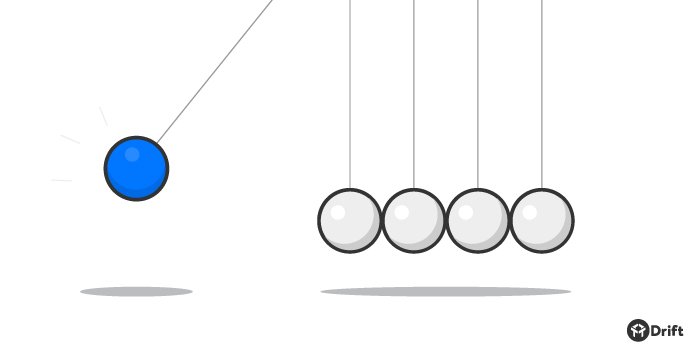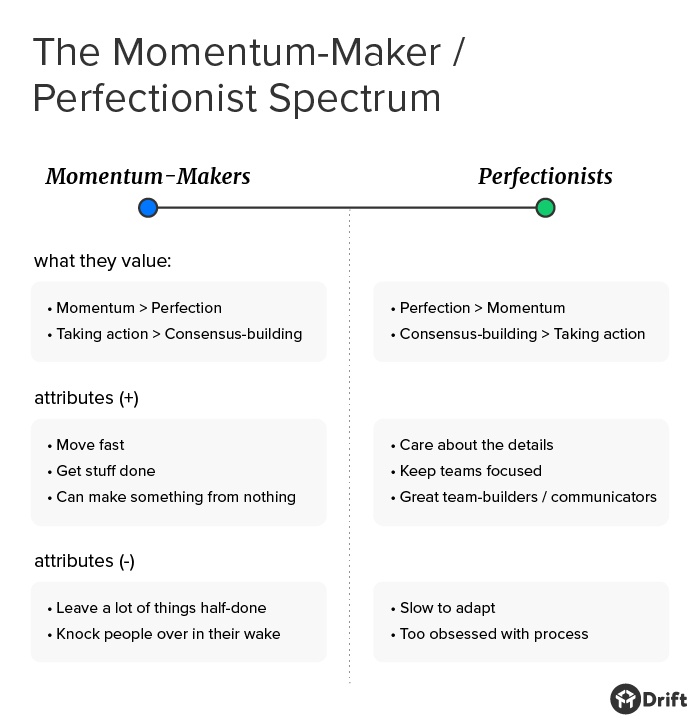
Earlier this month I came to a realization:
Everyone at your company falls along a spectrum.
At one end you have momentum-makers, and at the other you have perfectionists.

I personally fall closer to the momentum-maker end of the spectrum. And so does my co-founder Elias.
Momentum-Makers
As momentum-makers, we default to action. We bristle at the idea of “consensus” or “rules.”
We’re just constantly pushing forward, creating momentum for the company and spearheading our growth.
Of course, being a momentum-maker also comes with its disadvantages: We’re more prone to cutting corners, and skipping over details, and introducing bugs.
Perfectionists
If you’re a perfectionist, on the other hand, you strive to have something absolutely perfect before you start thinking about building momentum around it.
As a perfectionist, it’s more important that you get everyone on board and work out every little detail vs. getting something out the door quickly.
On the plus side, this approach helps keep quality standards high and helps keep teams aligned around common goals.
But the perfectionist mindset can also lead to too many rules, and too much process, which can bog teams down and stifle growth.
Ultimately, companies need a mix of momentum-makers and perfectionists.
However, you need to make sure you’re hiring them at the right times, and for the right roles.
Early in the life of a company, you want to overload with momentum-makers, because you’re trying to make something from nothing. You’re trying to get something into market.
And even if you’re at a larger company, when you want to start a new division, or when you want to launch a new product line, that’s when you should find momentum-makers within the company (or even get someone from outside the company to help you build that from the ground up).
But as you start to mature and things become more stable, momentum-makers can become a liability if you have too many of them. So you actually want to weigh your team more heavily toward the perfectionists at that point.
Perfectionists are the people who are going to care about the details and care about following up care about getting the team built and rallied around particular ideas. So over time, the team becomes predominantly perfectionists with very few momentum-makers.
Want to learn more? Listen to the full story on our podcast, Seeking Wisdom:



